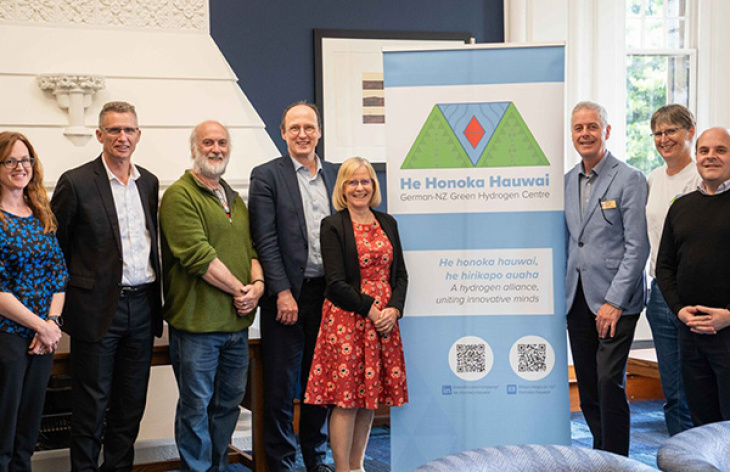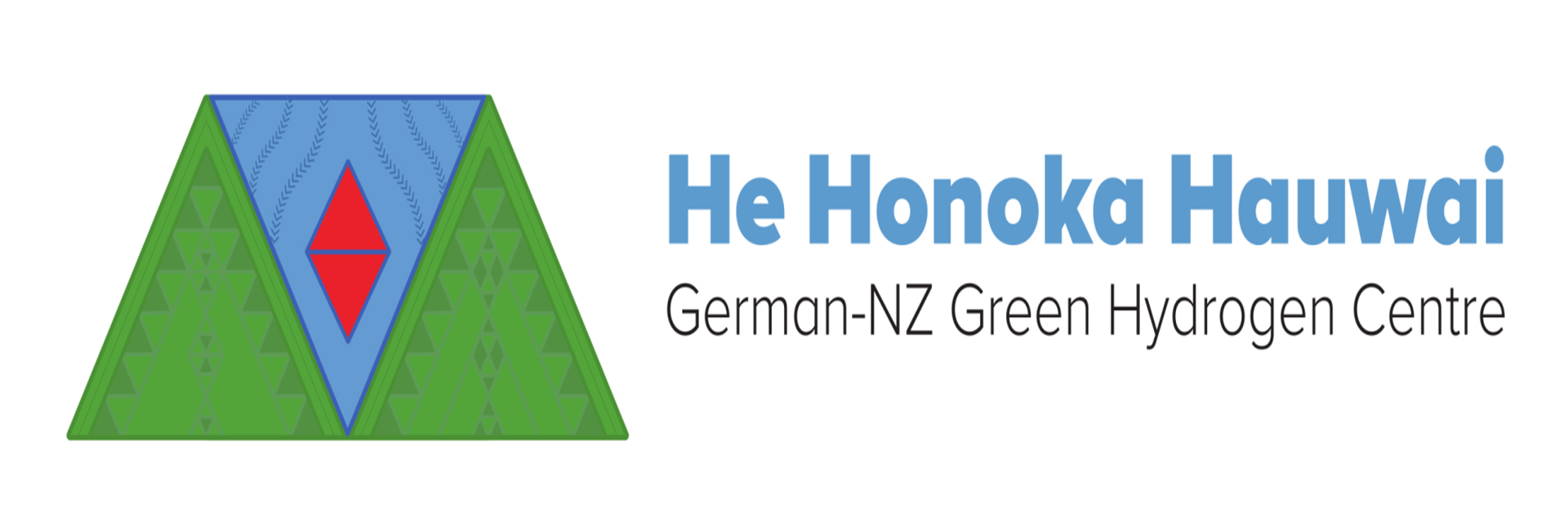Hereon in New Zealand
Researchers from the Helmholtz-Zentrum Hereon have traveled to New Zealand to take part in the second "New Zealand Hydrogen Symposium" in Wellington. Together with the University of Otago in Dunedin, Hereon is establishing the German-New Zealand Hydrogen Center. Its aim is to research and advance the topic of green hydrogen. In addition to hydrogen production, technology from Geesthacht plays a prominent role: energy storage in metal hydrides.

The Hereon-delegation made the most of their trip to the other side of the world. Photo: Hereon/ Paul Jerabek
Technology and knowledge from Hereon have long been at home in New Zealand. The research focusses on the production of green hydrogen and how it can be stored and transported. The project is now celebrating its halfway completion: around two years ago, the German-New Zealand hydrogen center called “He Honoka Hauwai” was founded at the partner university in Dunedin - in the Maori language this means "association for hydrogen". A laboratory is now fully equipped and the first jointly supervised doctoral student, Alexander Haack, is continuing his doctorate in Dunedin after a year and a half of training in the field of hydrogen storage materials at Hereon.
The center will receive additional hardware, including a virtual reality demonstrator, in the first half of 2024. Over the next two and a half years, the physical components will be completed, and the center can begin regular operations. The project partner gives Hereon the opportunity to benefit from New Zealand funding programs and raise third-party funds from a mix of German, New Zealand and EU funding.
Advantages for both partners
"It is an excellent opportunity to use our storage technology in practice in New Zealand and to further develop it there together. New Zealand has low-cost raw materials for hydrogen storage tanks, and this research gives Germany the chance to become a global technology exporter," says Prof Thomas Klassen, Head of the Hereon Institute of Hydrogen Technology. He was joined on the trip by Dr Paul Jerabek, Dr Kai Sellschopp, Ebert Alvares, Archa Santhosh and the second jointly supervised doctoral student Matthieu Ramond.
The researchers cultivated and expanded their network and met, among others, the Deputy German Ambassador Winnie Switakowski in Wellington and representatives of New Zealand companies that are already working or want to work with hydrogen technology. In addition to the research results and future joint projects, the newly opened funding opportunities through Horizon Europe were also discussed - New Zealand is now an associated partner in this EU framework program.
Everyone involved agrees that hydrogen is a core technology for achieving the climate targets. "The countries of the Pacific region will play an important role in the transformation," says Hereon researcher Paul Jerabek, who organized the trip. "Both as exporters of green hydrogen and as pioneers in its use. Self-sufficient and sustainable stand-alone solutions will be the first step." A delegation from New Zealand will visit Geesthacht in the summer. The next symposium in New Zealand will then take place in March 2025.
Further information
Hereon-Institute of Hydrogen Technology
Contact
Groupleader Computation and Simulation
Institute of Hydrogen Technology
Phone: +49 (0) 4152 87-2604
